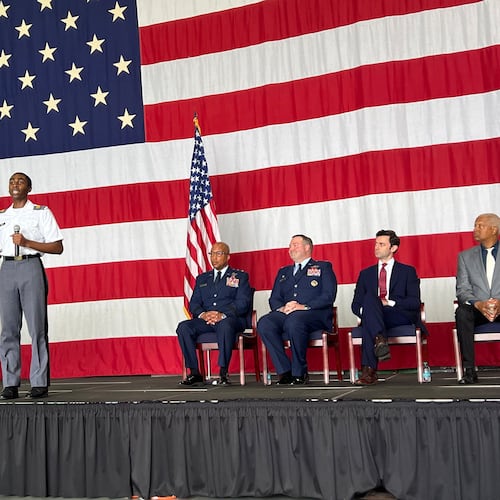The Libertarian Party of Georgia is appealing a federal judge's ruling that upheld the state's restrictive ballot access laws, which have kept third-party candidates from running for the U.S. House of Representatives since 1943.
U.S. District Judge Leigh Martin May ruled in favor of the state of Georgia last month, granting summary judgment because higher courts have repeatedly rejected similar lawsuits.
Her decision opens the door for the 11th Circuit Court of Appeals to review Georgia’s election laws, which allow Democratic and Republican candidates to automatically appear on ballots but require third-party candidates for U.S. House to submit a petition signed by at least 5% of the state’s registered voters.
With more than 6.7 million active registered voters in Georgia, the Libertarian Party would need to gather more than 335,000 signatures to run candidates in all of the state's 14 congressional districts. That's about 24,000 signatures for a candidate to run in any district.
"Voters are increasingly dissatisfied with the two major parties, but those same parties block all competitors. Georgia's voters deserve more options when they go to vote," said Bryan Sells, an attorney for the Libertarian Party of Georgia and other plaintiffs.
The lawsuit, filed in 2017, alleges that Georgia’s ballot access laws violate freedom of speech and due process rights guaranteed by the First Amendment and 14th Amendment to the U.S. Constitution.
More than 20 independent and third-party candidates have tried to run for the U.S. House in Georgia since 2002, but none has successfully gathered enough signatures, according to the lawsuit.
It’s easier for third-party candidates to qualify for statewide elected offices than for Congress. Statewide candidates must submit a petition signed by 1% of registered voters.
A bill introduced in the Georgia General Assembly this year, House Bill 191, would have reduced the number of signatures required for third-party candidates to seek office.
The legislation, which didn’t receive a hearing or vote, would have required candidates to gather signatures from just 200 voters or 1% of the total number of voters in the last election, whichever is less.
About the Author
Keep Reading
The Latest
Featured



